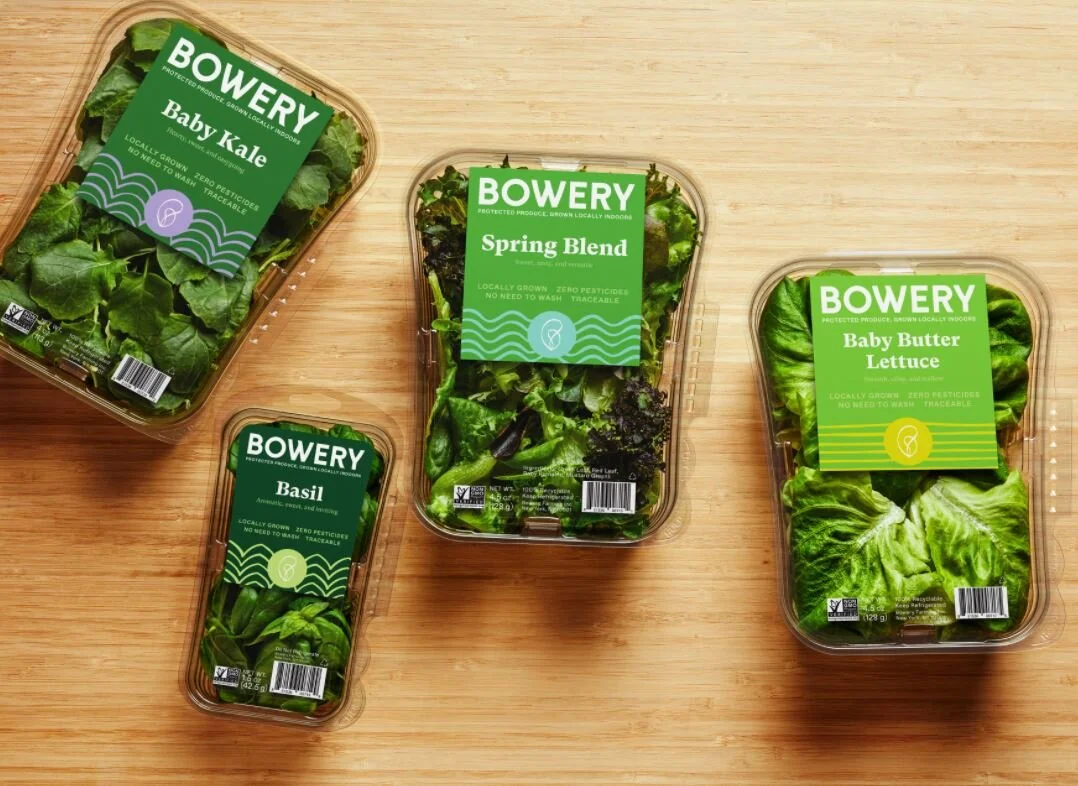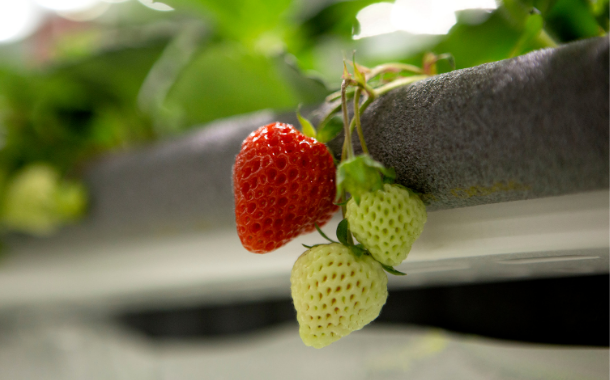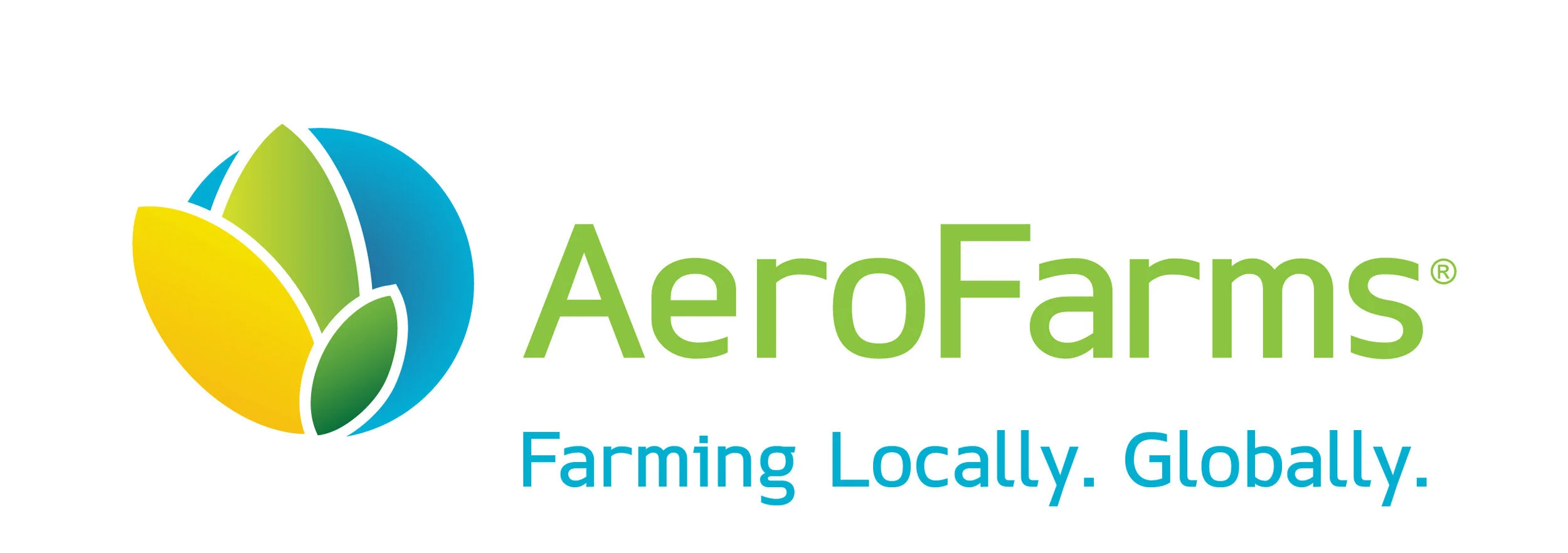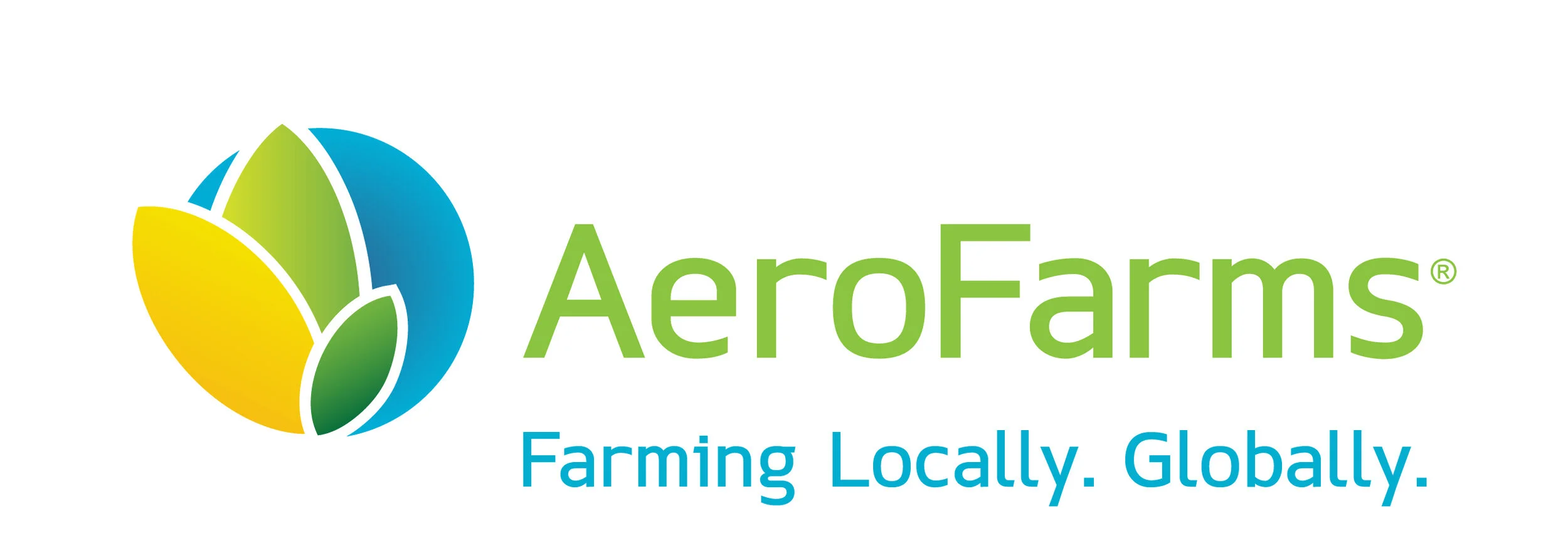
Welcome to iGrow News, Your Source for the World of Indoor Vertical Farming
A Vertical Farm In New Jersey May Be Transforming The Farm-to-Store Supply Chain
Bowery Farming in Kearny, New Jersey, is reimagining the farm-to-store supply chain. Bowery is the largest vertical farm in the United States, growing leafy greens, herbs, fruits, and vegetables inside a climate-controlled warehouse where crops grow in stacked trays under lights that mimic natural sunlight.
August 5, 2021
Bowery Farming in Kearny, New Jersey, is reimagining the farm-to-store supply chain. Bowery is the largest vertical farm in the United States, growing leafy greens, herbs, fruits, and vegetables inside a climate-controlled warehouse where crops grow in stacked trays under lights that mimic natural sunlight. “Marketplace” host Kai Ryssdal recently toured the research and development part of the farm, where Bowery fine-tunes the flavor of new produce such as radishes and strawberries with fewer threats of pests, water scarcity, or other challenges associated with traditional outdoor farming. Bowery also grows wasabi arugula and other hard-to-find vegetables that are difficult to cultivate using conventional growing methods.Because Bowery’s business model is based on growing crops in indoor sites near the cities they sell in, most products that would normally take two or three weeks to reach stores make it to market a day or two from harvest. Bowery Farming’s CEO Irving Fain sees vertical farming as nothing short of revolutionary, stating that it can “democratize access to high-quality fresh food” in cities. Bowery is growing in other ways: It has a second farm in Nottingham, Maryland, and a third is under construction in Bethlehem, Pennsylvania.
Vertical Farming Startup Oishii Raises $50m In Series A Funding
“We aim to be the largest strawberry producer in the world, and this capital allows us to bring the best-tasting, healthiest berry to everyone.”
By Sian Yates
03/11/2021
Oishii, a vertical farming startup based in New Jersey, has raised $50 million during a Series A funding round led by Sparx Group’s Mirai Creation Fund II.
The funds will enable Oishii to open vertical strawberry farms in new markets, expand its flagship farm outside of Manhattan, and accelerate its investment in R&D.
“Our mission is to change the way we grow food. We set out to deliver exceptionally delicious and sustainable produce,” said Oishii CEO Hiroki Koga. “We started with the strawberry – a fruit that routinely tops the dirty dozen of most pesticide-riddled crops – as it has long been considered the ‘holy grail’ of vertical farming.”
“We aim to be the largest strawberry producer in the world, and this capital allows us to bring the best-tasting, healthiest berry to everyone. From there, we’ll quickly expand into new fruits and produce,” he added.
Oishii is already known for its innovative farming techniques that have enabled the company to “perfect the strawberry,” while its proprietary and first-of-its-kind pollination method is conducted naturally with bees.
The company’s vertical farms feature zero pesticides and produce ripe fruit all year round, using less water and land than traditional agricultural methods.
“Oishii is the farm of the future,” said Sparx Group president and Group CEO Shuhei Abe. “The cultivation and pollination techniques the company has developed set them well apart from the industry, positioning Oishii to quickly revolutionise agriculture as we know it.”
The company has raised a total of $55 million since its founding in 2016.
AeroFarms Helps Reduce Food Waste With New Partnership With Table to Table and Matriark Foods
With its global headquarter and farms in Newark NJ, AeroFarms is excited to be able to provide delicious, healthy stems and greens from a second-harvest that normally would be left in the traditional field
AeroFarms Helps Reduce Food Waste with New Partnership with Table to Table and Matriark Foods Through New FarmPlus to People Program, funded by ReFED COVID-19 Food Waste Solutions Fund
AeroFarms is proud to support the new FarmPlus to People program, an innovative partnership with Matriark Foods and to upcycle farm surplus into a healthy, added-value vegetable stew for distribution to the hungry in New Jersey.
Matriark Foods and Table to Table were awarded a $50,000 grant from ReFED COVID-19 Food Waste Solutions Fund to pilot a processing program that pays farmers, creates jobs, diverts vegetables from landfill, feeds the hungry, and proves out the metrics for nimble processing infrastructure. The goal is to deliver 500,000+ meals and offset 1,000,000+ pounds of greenhouse gases over the next 90 days.
With its global headquarter and farms in Newark NJ, AeroFarms is excited to be able to provide delicious, healthy stems and greens from a second-harvest that normally would be left in the traditional field. AeroFarms pioneering indoor vertical farming allows access to the entire root to leaf to create upcycled products that are breaking through for their culinary flavor and nutrition.
The nutritious, tasty vegetable stew will be distributed to the hungry using Table to Table’s established logistics capability and large network of agencies in Bergen, Essex, Passaic and Hudson Counties in New Jersey.
The Covid19 pandemic has increased the challenges of accessibility and availability for much-needed fresh food, straining food system logistics of storage and distribution resulting in an increase in food waste at a time when so many are in need. We are thrilled for the opportunity to partner with such extraordinary organizations who will help us provide an alternative source of nutritious produce. ReFED’s commitment to this project will have a significant impact on our ability to feed our hungry neighbors, while keeping a little less food from ending up in our landfills.” said Ilene Isaacs, Executive Director of Table to Table.
“The goal of this public/private partnership pilot is to demonstrate that with the existence of more nimble food processing, massive amounts of food waste could be diverted from landfill while providing jobs, nutritious food for those who need it, and offsetting GHGs at scale,” states Anna Hammond, Founder and CEO of Matriark Foods. “We plan to optimize the use of the ReFED grant to inspire investment in scaling our model for the benefit of people and the environment.”
“AeroFarms is proud to partner with Table to Table and Matriark to help provide fresh, nutritious, delicious leafy greens and stems and serve our communities struggling with food insecurity. As a Certified B Corporation, we are committed to helping increase access to fresh, healthy, great tasting food while minimizing food waste, a huge contributor to climate change. “Marc Oshima, Co-Founder & Chief Marketing Officer, AeroFarms
“We’re thrilled to collaborate with Matriark and Table to Table to divert high quality produce at risk of going to waste to those who need it most. In particular, we see enormous value in demonstrating a proof of concept for in-time processing of surplus produce, a development that has the potential to build capacity for a food waste reduction strategy that has remained elusive due to lack of nimble processing infrastructure.” Anya Ranganathan, Co-Founder, Bad Apple Produce
“COVID-19 has disrupted the regular flow of the food supply chain, making it difficult to get fresh, healthy food to the people who need it most and increasing the amount of food insecurity,” said Alexandria Coari, Capital and Innovation Director at ReFED, a national nonprofit working to advance solutions to reduce the amount of food waste. “The work of organizations like Table to Table and Matriark Foods is urgent, and we’re excited to get them the critical support they need from the ReFED COVID-19 Food Waste Solutions Fund.”
US: Jersey City Is Growing Leafy Greens For $17 Per Pound to Give Away For 'Free'
The city will spend close to $1 million building vertical gardens to provide produce for its healthy eating programs
The city will spend close to $1 million building vertical gardens to provide produce for its healthy eating programs.
CHRISTIAN BRITSCHGI | 6.9.2020 ( Serhii Neznamov/Dreamstime.com)
Sometimes you have to spend some green to make some green.
On Wednesday the city council of Jersey City, New Jersey will vote on awarding a three-year, $1 million contract to the company AeroFarms to build 11 vertical gardens on city properties. The company estimates it will be able to churn out 19,000 pounds of leafy greens a year from these installations, which will then be distributed for free to city residents.
Steven Fulop, the city's mayor, told NJ.com that the farms would produce vegetables for city-run healthy eating programs. Residents would register for these programs to receive the free produce, on the possible condition that they would be required to attend healthy eating classes and/or have their diets and health monitored."It is going to be oriented towards diet, healthy eating, and making people more aware of what they are putting into their body,"
Fulop said. "We are going to be hopefully changing outcomes of how people eat and live which ultimately changes life expectancy."
The $70 million hole the coronavirus pandemic has blown in the city's budget only makes the AeroFarms contract more valuable, the mayor told the news site, given how obesity can compound COVID-19. "We feel it is more important than ever to focus on food access and education," he said.
The "we'd be stupid not to do it" attitude is encouraging. The cost and overall concept of the program raises a few concerns, however.
According to AeroFarms' estimate, it will be able to produce about 58,000 pounds of produce over the life of its three-year contract.
This means that the city is paying $17 per pound of leafy vegetables produced. Even if one excludes the construction costs of the vertical farms (which would presumably be usable after the three-year contract ends), it's still paying a little over $7 per pound of produce.
A quick online search shows the city could buy a pound of spinach from Safeway for under $2 a pound.
A 1-pound package of organic mixed greens at Walmart costs a little less than $5.If the city were really so keen on improving the diets of its residents, it would probably be far cheaper for it to just buy produce from local grocers and then give it away.
Indeed, the city staff who evaluated AeroFarms' 2019 bid for the city's vertical farming contract (the only one the city ended up receiving) expressed concern about its costs, particularly given that the city wouldn't retain ownership of the vertical garden units.
The idea of bringing vertical farming to Jersey City is part of a broader initiative of the Swiss-based World Economic Forum to create public-private partnerships that will "design and support socially vibrant, and health and well-being centric communities in cities."AeroFarms' method of vertical farming, which grows plants inside without the need for sunlight or soil and uses very little water, apparently fits into this broad vision. The World Economic Forum has been touting the promise of vertical farming since at least 2015.
Yet in that time, more boring improvements in agricultural technology have been at work boosting crop production while using less land. That's improved sustainability while driving down prices.It's quite possible that one day, vertical urban farms will be a far more efficient option. Unfortunately, that day isn't here yet.








